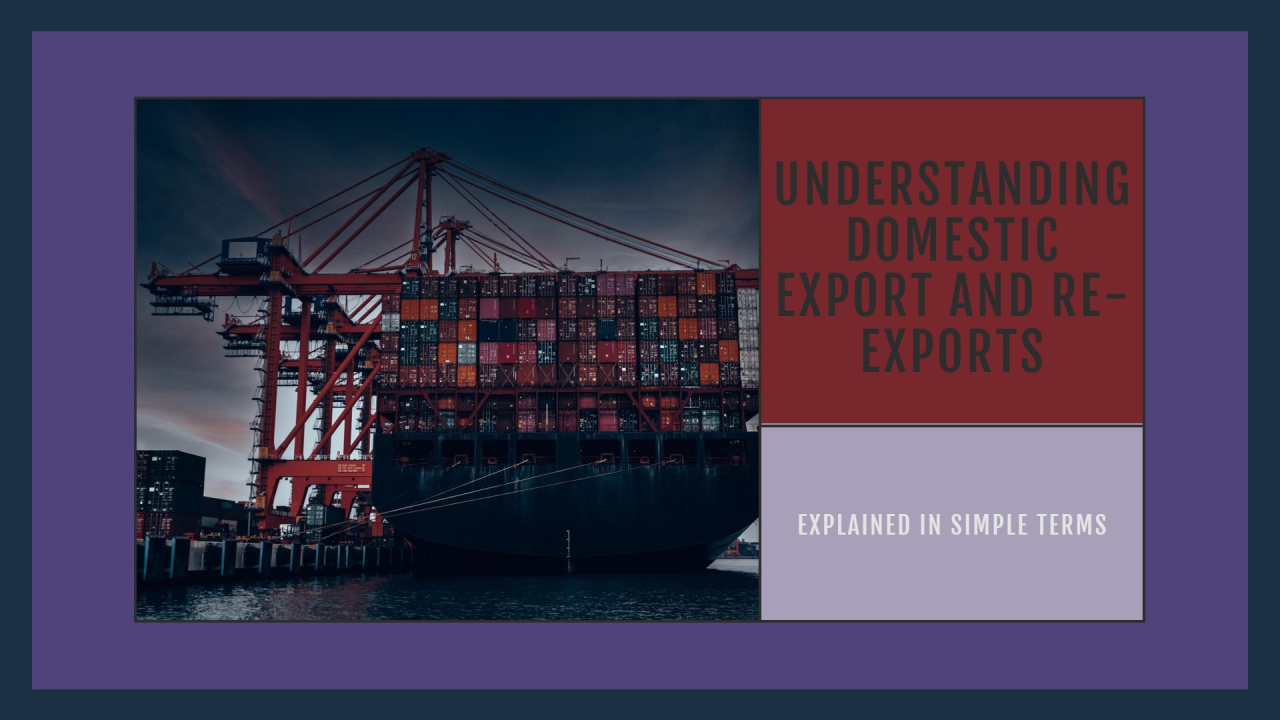
Domestic Export vs Re-exports
Domestic Exports have two components. Firstly, it includes the cross-border selling of goods that are grown and manufactured/produced within the borders of the economic territory (i.e. country). Secondly, domestic exports consist of foreign goods (imported goods) that went through significant industrial transformation before they are exported.
On the other hand, re-exports include foreign goods that are exported in the same state as previously imported or without undergoing any major processing or value addition processes. In most cases, those goods enter the country for services such as sorting, packaging, storage, transport, etc. The Namibia Statistics Agency (NSA) reported that Namibia re-exported goods worth of N$2.2 billion in the month of October 2023 which were dominated by petroleum oil and precious stones (diamond), respectively[1].
Although re-exports allow the country to generate earnings particularly for the service sector, the benefits derived are not as optimal as the ones for foreign goods that were significantly transformed. Otherwise speaking, re-exported goods only benefit the exporting country’s service sector but not the manufacturing/secondary sector. Domestic exports benefit both sectors since the value addition is offered in the manufacturing sector.
In the final analysis, re-exports could imply that Namibia is an international logistics hub in terms of efficient port, storage, efficient transport network, collection and distribution of goods and cross-border arrangements as stipulated in Logistics Hub Master Plan developed by the National Planning Commission (NPC)[2]. However, optimum economic benefits such gross domestic product (GDP) and employment are not realized as in case of domestic exports. Similarly, re-export can possibly be used by multinational enterprises (MNEs) to avoid taxes, tariffs, and quotas and eventually reduces state revenue[3]. To be specific, a subsidiary in a low tax country may re-exports goods to an affiliated entity in a high-tax jurisdiction to minimize tax liability for the overall entity. Hence, re-export should be discouraged in favor of domestic export in industries where the country has no economic constraints.
[1] https://nsa.nsa.org.na/new_publications/namibia-merchandise-trade-statistics-bulletin-october-2023/
[2] https://www.npc.gov.na/wp-content/uploads/2021/11/Logistics-Hub-Master-Plan.pdf
[3] https://www.usitc.gov/publications/332/journals/jice_re-export_gvc.pdf